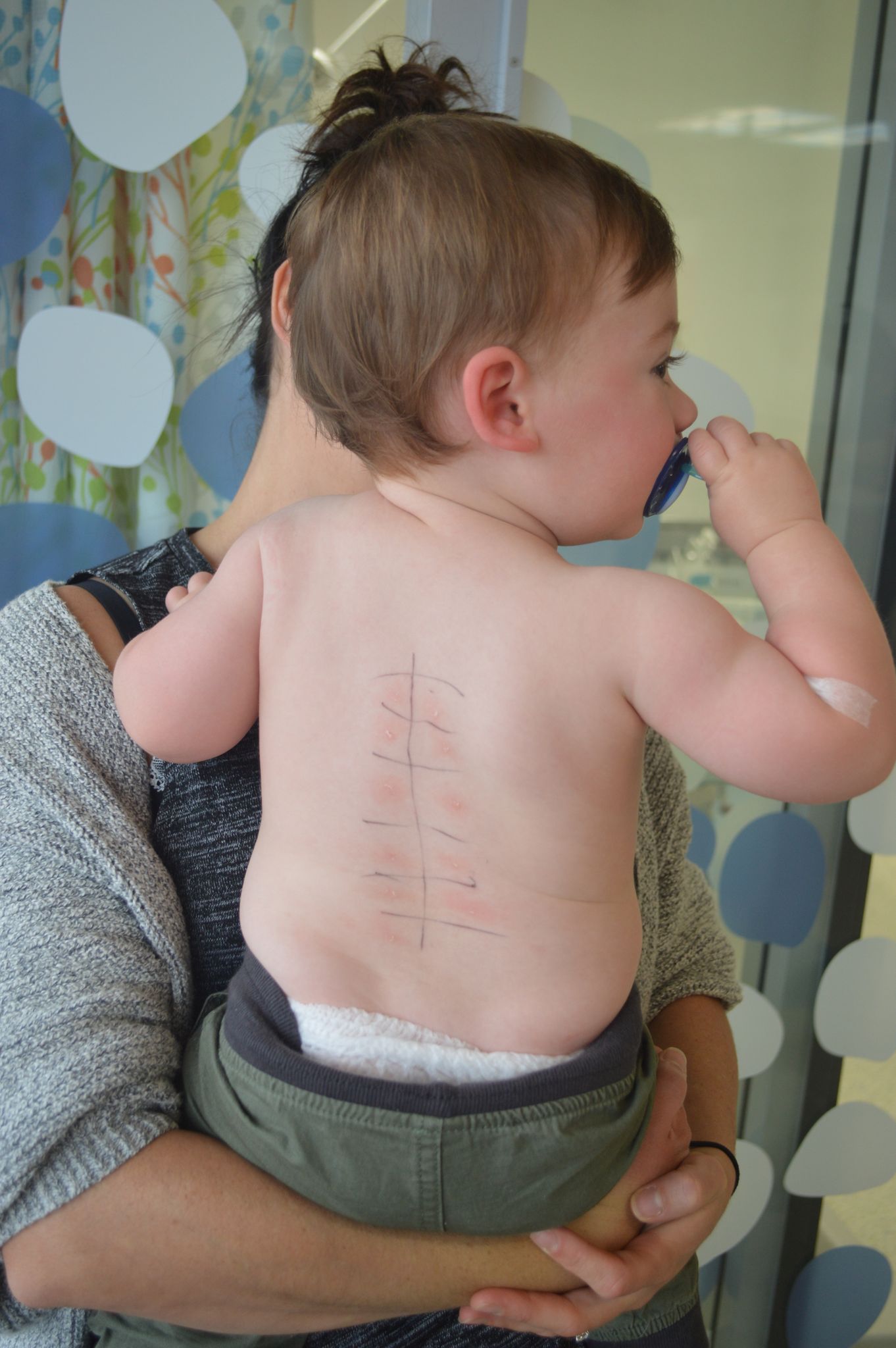The Mast Cell Study aims to compare how mast cells, found within blood samples taken from the ORIGINS cohort at one-year of age, are “programmed” in allergic and non-allergic children.
Allergic diseases affect one in every five Australian children. Already from the first months of life, infants can show signs of allergy such as eczema or skin rashes. Allergies develop because the immune system confuses harmless substances, such as food or pollen with dangerous substances such as parasites or toxins.
As defence, the immune system produces a special type of antibody called IgE. These recognise the substance (allergen) and are in turn recognised by a type of immune cell called mast cells.
When mast cells with allergen-IgE recognises an allergen, they release histamines which leads to the generation of most of the symptoms associated with allergies, such as runny nose, itchiness and swelling.
Recently, research collaborators discovered that mast cells travel to all parts of the body when children are very young and then stay in those body parts throughout life.
This means that the function of mast cells in early life might set the baseline for adult tissue mast cells.
As mast cells have such a central role in allergic diseases, they are a very suitable target for new allergy drugs, however we must first better understand how they function and how their function translates into allergic disease.
In this project, we will compare how mast cells are “programmed” in allergic and non-allergic children at one year of age. This is only possible through the development of new and sensitive methods that can detect these very rare cells as they migrate throughout the body.
Aiming to analyse around 60 blood samples, taken at the one-year skin prick allergy tests which occur as part of ORIGINS protocol, there is no recruitment required for this study.
This study is a collaborative project between the ORIGINS cohort, allergy and immune researchers at The Kids Research Institute Australia in WA and Bioinformatic mast cell researchers in Singapore.
By collaborating on this study, researchers are able to investigate new aspects of how these important cells contribute to allergic disease in children which has not previously been possible.
The Mast Cell Study is a sub-project of ORIGINS and is supported by funding from The Kids Research Institute Australia, through a BlueSky grant thanks to BHP.
For more information
Contact: Jonatan Leffler - Chief Investigator

